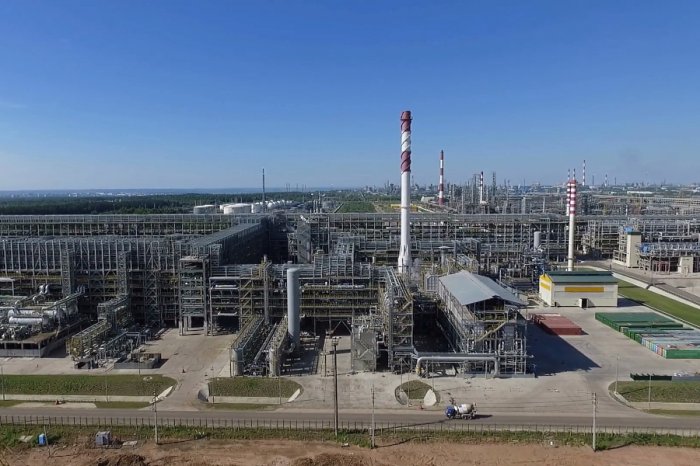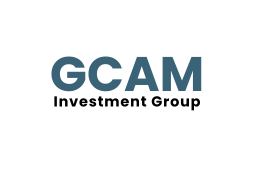International investment consulting services
GCAM Investment Group offers:
• Investment financing from €50 million and more
• Minimizing the contribution of the project promoter
• Investment loan term up to 20 years
• Loan guarantees
These services are becoming increasingly important for projects initiated by both large private companies and government agencies.
Investment consulting include, but are not limited to:
• Development and comprehensive support of the investment project.
• In-depth analysis and assessment of the effectiveness of a business project.
• Fundraising and consulting on instruments for raising capital.
Each of these services affects the investment activities of the business, based on the use of special consulting technologies that can increase the likelihood of project success.
Implementation of large projects on the basis of intuition no longer corresponds to economic realities and cannot meet the growing demands of business in the context of globalization and entry into world markets.
As doing business in many industries today faces increasing competition for capital, fundraising has become an important element of investment consulting.
Fundraising as a comprehensive service includes the following:
• Search for potential investors and lenders.
• Development of a high-quality presentation of the project.
• Effective communications with major capital providers.
• Modeling and forecasting cash flows.
• Financial guarantees, etc.
Today, the key task of an investment consultant is to create mechanisms to ensure that the interests of the project participants are met in the long term.
Professional services in this context help companies to prevent severe financial or reputational losses by ensuring that the investment agreement is adequately structured and financial flows are properly managed.
GCAM Investment Group has a long history of financing large investment projects around the world, including Spain and the EU, Latin America, the Middle East, East Asia and Africa.
We are ready to provide you with advanced investment consulting services for projects in mechanical engineering, mining and processing of minerals, conventional and renewable energy, oil and gas sector, agriculture, real estate and other sectors.
Investment consulting services for medium and large businesses
This type of service can be viewed from two sides, depending on the type of client and his interests.From the point of view of real sector companies, investment consulting is focused on finding and attracting financing for investment projects. From the point of view of a potential investor, these services represent a professional search, formation and management of an investment portfolio that best suits the profile of a particular investor.
In this section, we consider investment consulting from the point of view of a large business that needs to attract financing and manage financial flows in the framework of investment projects.
If you are interested in financing your project in the EU or abroad, contact the experts of GCAM Investment Group for more information.
Definition
The enlargement and increasing complexity of investment projects, the improvement of structuring and project financing technologies require company managers to better understand the potential and risks of innovative forms of financing, the specifics of interaction with different investors, ensuring the commercial interests of project participants, and more. In the 21st century, even large companies are often unable to ensure the high quality of investment processes on their own.These companies, along with government agencies and other players, are driving the demand for consulting.
Against this background, investment consulting services are becoming a valuable tool for increasing the competitiveness and efficiency of companies by using advanced methods, investment design technologies, organizing and managing investment activities, managing financial flows, etc.
Investment consulting can be defined as the process of providing professional services / advice to a business on the development, selection and application of the best option for a project, fundraising and achieving target financial indicators.
Objectives and scope of consulting services
Elements of a comprehensive investment consulting service can sometimes be provided to customers as separate services.In global practice, the most demanded services are:
1. Pre-investment research.
2. Development and evaluation of an investment proposal.
3. Development and evaluation of a business plan.
4. Modeling the financial flows of the project.
5. Analysis of business opportunities, risks and vulnerabilities.
6. Development of a financial model.
7. Project presentation.
An important role in this context is played by numerous related services, including the approval of an investment project in local authorities, obtaining licenses, developing technical documentation, and the like.
The goals of hiring external experts can be to obtain an objective assessment of the situation, to professionally solve specific project problems, as well as to help businesses in critical situations. Some European financiers identify so-called "resource consultants" (specialists who suggest what to change in a project) and "process consultants" (specialists who suggest how to change certain aspects of a project and teach clients to solve problems).
Analysis of the structure of services of consulting companies specializing in large business allows us to highlight the most important areas of work of corporate investment consultants.
This includes the following:
• Minimization of risks for participants in a project, including planning, assessment, analysis and support for the implementation of investments.
• Ensuring effective communication, which consists in a clear dialogue between the business owner and its investors and other capital providers.
• Engineering services, which include technical improvement of project components in order to achieve the best result for the participants.
Our team of experts with over 20 years of experience in project financing is ready to solve any problems that arise during the investment process.
Contact GCAM representatives to find out more.
Investment consulting demand
In recent years, the global demand for investment consulting services has been growing at the expense of SMEs, large businesses, banks and government agencies.Although the relative share of SMEs in the demand structure has increased, large and expensive projects are certainly being implemented with the participation of multinational companies and governments.
Such services as the search for investment objects that meet certain requirements, Due Diligence and a comprehensive assessment of the project's effectiveness, as well as legal support, are becoming more and more relevant for investors. The initiators of large projects are primarily interested in the development of a financial model / business plan, preparation of project documentation for investors, search and attraction of funding sources, determination of the most appropriate resource use schemes.
Such services in the context of large investment projects are quite expensive, since they require consulting companies to use advanced techniques, experience, knowledge and business contacts.
Classification of investment consulting services
Leading financial experts view investment consulting as an element of strategic business consulting.A number of international companies include it in the list of financial consulting services, which is logical. On the other hand, some consulting firms are moving business planning or financial modeling beyond investment consulting services.
Investment consulting is associated with the implementation of projects in the real sector of the economy (although this does not at all exclude the use of securities for financing), while stock consulting focuses on financial investments.

Obviously, this type of service needs additional systematization and a clearer classification, which is currently lacking.
Any investment project consists of several stages of the life cycle, which include the pre-investment stage, the investment stage, the operation stage, and the final liquidation stage.
This provides for the following sequence of actions by the participants within the project:
1. Formation of investment intentions and the general concept of the project.
2. Conducting a detailed and comprehensive pre-investment analysis.
3. Construction / purchase of a facility and its preparation for operation.
4. Operation of the facility for the purpose of making a profit.
5. Closing / liquidation of the project.
The characteristic features of each stage of the project cycle determine the appropriate structure of investment consulting services for business.
This allows us to propose the following classification:
• Development of an investment project (from planning to the signing of investment agreements) and support of the client at every stage.
• Evaluation of the effectiveness and comprehensive examination of the investment project.
• Optimization of sources and methods of financing, fundraising in the context of choosing the best sources of financing for a specific project.
• Advising customers on optimal investment instruments, including analysis of an asset for its purchase / sale (Due Diligence), assessment of the company's investment attractiveness, determination of priority investment areas and much more.
Below we will take a closer look at each type of investment consulting services, focusing on fundraising (raising capital for projects) as the most important aspect for a business.
Project development and investment memorandum
As part of raising capital to finance large projects, consulting companies can develop a strategy and business plan, as well as draw up an investment memorandum.This activity is critically important in the context of investor interest and awareness.
Investment consulting companies offer clients the development of project documents according to the standards / recommendations of UNIDO, the European Bank for Reconstruction and Development or the specialized financial body of the host country.
Consulting service for the development of an investment project includes the following:
• Assessment of the sector and specific investment object.
• Professional financial and legal analysis of an investment project.
• Preparation of analytical report, business plan and detailed road map for the client.
• Establishment of checkpoints and intermediate indicators for project monitoring.
• Presentation of the project to potential participants.
At the request of the client, information on alternative directions and projects can be prepared, as well as an assessment of the selected executing companies responsible for the implementation of the project.
Consulting support of a project means real-time assistance by professional consultants who help solve business problems on a daily basis.
This type of service enables large businesses to avoid costly mistakes in project implementation, and also helps in solving less significant tasks for which clients cannot always allocate time and human resources.
Consulting support of projects is advisable for the following clients:
• Companies that have encountered systemic investment difficulties and do not have a clear understanding of the further progress of projects.
• Companies that need to attract an effective external investment team for the implementation of projects, including the management of financial flows.
• Companies that need to attract additional financing for large capital-intensive projects and do not have relevant experience.
Below are the documents that must be submitted to investors for the successful implementation of the project. Companies that specialize in investment consulting for large businesses can provide invaluable assistance in the development and presentation of these documents.
Table: Brief description of the package of documents for the presentation of a large project.
| Document type | Short description |
| Investment teaser | Brief presentation of the project. This is the first important document for a potential investor, which is designed to attract the investor's attention without disclosing details and ensure that it gets into the short list of interesting projects. |
| Feasibility study | This is a detailed document that discloses plans for the development and placement of an investment object, its design capacity, technical aspects, needs for energy, raw materials and fuel, etc. |
| Business plan | A business plan is a carefully prepared document that discloses all aspects of any commercial project. The plan allows participants to review and adjust, if necessary, measures to implement a business idea, determine financial support and potential benefits. |
| Investment proposal | This document should present the project to investors in order to raise capital. It usually contains a description of the project, as well as an estimate of cash flows in a certain time horizon and an estimate of the return on investment. This document is extremely important for structuring the agreement, building a financial model of the project, and the prospects for its implementation. |
| Options for investors to exit the project in the future | This can be a stand-alone document or part of an investment proposal. Options for investors' exit from the project should justify the possibility of selling assets and making a profit, such as the buyback of shares by management, placement of shares on the public market (IPO), etc. |
Finally, it should be noted the investment memorandum, which is being developed for the most efficient presentation of the project to potential investors.
The quality of this document largely determines the chances of attracting funding.
An investment memorandum is a presentation document with detailed information about a business and a project, developed to attract funding. The document contains the structure of the agreement with a potential investor, a detailed analysis of the company and its activities, taking into account the attracted investments. It includes measures to ensure optimal interaction between the investor, owners and project management after receiving funding.
Analysis of the effectiveness of an investment project
A comprehensive analysis of the effectiveness of an investment project has always been a laborious procedure that involves forecasting and modeling the cash flows, assessing risks and developing measures to minimize them. In many cases, companies do not have their own departments staffed with experienced specialists to perform this task well.Professional support of companies providing investment consulting services helps the business to solve such important tasks at a high level.
A professional assessment of a business plan is associated with an assessment of the completeness, reliability and relevance of information, the accuracy of calculations, the validity of parameters, risk assessment, identification of project weaknesses and their impact on results, scenario analysis of efficiency, etc. These and other services give the initiators of the project obvious advantages.

Engaging investment consultants to assess the effectiveness of large projects allows company owners to save significant funds, increase the chances of attracting financing on adequate terms and ensure business growth.
Obviously, making decisions intuitively in such cases would be presumptuous and rather risky.
The investment team of GCAM Investment Group is ready to help your company with the analysis of the project efficiency and prepare the necessary project documentation at a high professional level.
Contact our official representative for details.
Due Diligence and risk assessment
To assess the risks of buying assets or participating in a project, organizations and companies often turn to investment consultants for Due Diligence (DD).Due Diligence is a complex procedure for a comprehensive verification of the business processes of a company or an investment project, assessing their legal purity and commercial attractiveness as investment objects to justify investment decisions and minimize investment risks.
There may be several reasons for conducting Due Diligence:
• Preparation for the sale and purchase of the company and / or its share.
• Assessment of the investment attractiveness of a company or project.
• Preparation of a merger or acquisition agreement.
• Verification of a potential partner, etc.
Among the tasks of Due Diligence, investment consultants single out the determination of the current price of an asset and its future price on the investment horizon to determine the profitability of the project.
The purpose of a deep check can be to minimize information asymmetries between investors and project initiators for more effective and safe investment.
DD aims to avoid or reduce the following risks:
• Buying a company at an inflated cost.
• Default of debt obligations by the borrower.
• Loss of assets due to participation in a risky project.
• Causing harm to the business reputation of the company.
• Recognition of the transaction as invalid.
• Lawsuits and sanctions.
• Corporate conflicts.
Due Diligence within the framework of investment consulting involves the study of all aspects of business, including marketing, financial, technical and legal.
Based on the results of the measures taken, all areas of the company's (project) activities are combined into one report containing expert opinions on the profitability and risks of the project.
Since raising capital for large investment projects is the most important and complex part of investment consulting services, we will highlight this element in a separate section for more detailed discussion below.
Fundraising: attracting investments for large business
Fundraising, or raising funds for investment projects, is considered a popular investment consulting service today.Arranging financing for a business project is a long, complicated and expensive process, which nevertheless does not give a 100% guarantee of success for each proposed project.
Fundraising in business consulting means a set of consistent activities to find and attract investors. Therefore, some consulting companies define this service as investment financing.
A good investment advisor comprehensively justifies the use of various instruments and methods of financing and develops an optimal financial scheme.
This is influenced by the following factors:
• Terms of implementation of the investment project.
• Project type and current industry specifics.
• Specific stage of the project cycle.
• Taxation system in the host country.
• The structure of the company's assets.
• Capital market, etc.
In all cases, the purpose of this activity within the framework of investment consulting services is to raise capital on favorable terms for the customer using such instruments as long-term loans, issue of shares, leasing instruments, etc. Often these tasks are solved by project financing instruments (PF).
Financing an investment project should provide the following effects:
• Attraction of sufficient funds for the project as a whole and for each stage of the investment cycle in accordance with the schedule of their implementation.
• Minimization of risks and costs of project participants, each of whom strives to obtain the greatest benefit and has its own requirements for the results.
The greatest interest in attracting investors arises at the stages of launching a company (project) or its rapid growth. Consulting companies have huge databases of potential investors, understand their profile and strategy. Potential investors also use these contacts.
Types of investors and strategies for raising funds
The investor's goals are always formulated through the development of a clear investment strategy or investment plan, following which in the long term should lead to the achievement of goals. The investor achieves these goals by acquiring various assets for a certain period.The investment process includes the following stages:
1. Search and purchase of a profitable asset.
2. Receiving income for the period of ownership of the asset.
3. Search for a new buyer of the asset.
4. Sale of an asset.
Income for the investment period consists of regular income for the period of ownership of the asset and the final income as a result of changes in the market value of the asset:
• Passive investment strategy: the investor's activity ends with the acquisition of an asset, after which he receives dividends or profits (the so-called "buy and hold" strategy).
• Active investment strategy: the investor is interested in the growth of income and capitalization of the asset (increase in value over time). In this case, the investor seeks to get more money from the growth in the value of his asset, tracking changes in value and being ready to sell it at any time.
Different types of investors have different motivations and goals for participating in the project, they are attracted at different stages of the project cycle.
Thus, depending on the type of project of the life cycle stage, the goals of the investment rounds differ.

It is important to take these stages into account when developing strategies for attracting funds for large business, since these strategies must fully fit into the investor's understanding of their financial interests at each stage and its duration.
Table: Types of investors in large business projects and their features.
| Types of investors | Brief description, advantages and disadvantages |
| Venture investors | The venture investor finances high-risk innovative projects at the early stages of their life cycle with the expectation of high returns. This type of investor ends up participating in a project by selling the asset after a significant increase in market value. |
| Advantages: the venture investor is an important source of mid-term capital in the early stages of a company or project. | |
| Disadvantages: he seeks to obtain a high rate of return, in 2-3 years he sells his share; is not an expert in the industry and is not a source of technical knowledge or know-how. | |
| Financial investors | The financial investor seeks to acquire a stake in a highly profitable promising project and, over time, resell the assets. Buys a minority stake after planning an optimal exit strategy. Usually this type of investor is not involved in the formation of a business development strategy. |
| Advantages: it does not participate in management, being an important source of medium-term investments; ready for high risk and does not pretend to be project management. | |
| Disadvantages: he is usually not an expert in the industry and does not bring any special knowledge and know-how; strives to get high profit margins, sells shares in the medium term. | |
| Strategic investors | A strategic investor is frequently interested in acquiring a controlling stake in a company with active participation in management; he seeks full control of the project and has a long-term economic interest. |
| Advantages: access to technology, new markets, business contacts; providing protection against raiding or other illegal actions; readiness to invest significant funds and focus on the strategic development of the investment object. | |
| Disadvantages: the goals of the investor may not be consistent with the goals of other project owners; participation in management and strategic decision-making; risks of change of management and loss of the project. | |
| Public investors | A public investor is attracted as a result of an IPO (sale of a company's shares on the stock exchange). This type of investor has no clear influence on development strategy and project management. |
| Advantages: he does not participate in the day-to-day management of the company; can serve as a source of long-term capital and does not require a specific rate of return on investment. | |
| Disadvantages: high costs for audit, listing, registries, PR, and lack of real expert and advisory support. |
It is important not to limit the activity to the search for an investor of the appropriate profile.
In the case of financing large projects, we are talking about a comprehensive service, including the search for investors or lenders for the project, the development of an attractive proposal, the organization of effective communications, the development of a financial model, etc.
Finding a provider of capital in investment consulting is only the first step to the success of a project. The second step depends on the appropriate preparation of the project and the team for attracting investments (presentation and communication). The main task of a consultant when organizing an investment round is to create balanced mechanisms to protect the interests of the parties in the long term.
Strategy and algorithm for attracting large investments
It is obvious that a well-organized investment attraction strategy for large investment projects has a decisive influence on the chances of a given project's success.A professional fundraising strategy should include the following:
• Determination of the required investment amount.
• Analysis and comparison of alternative sources of raising funds.
• Determination of the target audience of the project (investors, lenders).
• Development of an investment proposal and sending it to investors.
• Development of an effective option for closing the project (exit of participants).
• Organization of an effective presentation of the project.
• Communication between participants.
• Deal structuring.
A component of fundraising services is the so-called Investor Relations (IR), which includes the organization of information and analytical measures aimed at establishing and developing two-way communication with investors, financial analysts, creditors, partners and other participants.
The Investor Relations toolkit includes company reports, databases of investors and lenders, contacts with business media, press releases and briefings for the target audience, presentations of financial results, investment plans, programs, etc. The purpose of these actions is to bring to the listed participants the information that is essential for making informed investment decisions.
Below we have provided a typical algorithm for interacting with a potential investor.
Studying the investor profile
Companies providing investment consulting services for large businesses specialize in collecting and organizing valuable information about the investment profile of potential partners.This information can be successfully used to attract funding for specific projects.

The essence of studying the profile of an investor is to find out his investment strategy, acceptable level of risk, possible amount of financing, desired share in the project and priorities, preferred investment stages, industries, regions and other features.
Preparation of project presentation
Preparation of an investment project presentation includes the following:• Purpose and parameters of the project.
• Terms and stages of implementation of the investment plan.
• Information about the initiator (team, qualifications, experience).
• Market, industry and competitive environment.
• Technology, description of products and services.
• Investment volume and sources of financing.
• Financial models and forecasts.
• Investment plan.
The presentation of the project should be comprehensive, but at the same time concise, clear and convincing.
It is important to describe the strengths of the project in a short time, provide several scenarios for the development of events and indicate the parameters affecting its result, emphasize the baseline scenario and analyze the payback period.
A convenient format for presenting project information, designed for 3-5 minutes of the attention of a potential investor, along with a well-structured presentation structure, ensure excellent results at subsequent stages of interaction.
Structuring the agreement and choosing an investor
This element of cooperation with potential investors is considered the most difficult and time consuming in investment consulting.The structure of the deal contains the following:
• Project participants.
• Terms of project financing.
• Optimal capital structure and financing methods.
• Financing terms: risk mitigation for participants.
The classic approach to financing large business projects focuses on finding the most suitable combination of equity capital and borrowed funds. The advantages and disadvantages of each of these sources are well known and have been described in our articles.
Hybrid financial instruments
Modern projects are characterized by an increased degree of risk, which has been repeatedly demonstrated by the example of the negative impact of market and political factors on various companies (for example, industry sanctions, which have been widely used in recent years against the backdrop of growing geopolitical tensions).In an effort to protect themselves as much as possible, the project participants resort to the use of hybrid financing tools, which increase profits and protect investors from the consequences of the bankruptcy of the project.
Hybrid financial instruments include, but are not limited to:
• Convertible bill: a debt security, the owner of which has the right to convert it into a share of the project after a specified period of time.
• Mezzanine finance: an intermediary instrument between bank loans and private equity. It is a combination of several instruments with different levels of risk and return.
• Warrant: an option that gives the right to purchase a certain number of shares of a company (object of investment) at a predetermined price.
The defense mechanisms of each of the listed hybrid tools are unique and applicable to certain types of projects and / or conditions of their implementation.
Development of the best ways to protect project participants in one form or another is the responsibility of investment consulting companies.
Below we will briefly talk about the reverse side of consulting services focused on meeting the interests of potential investors, whether they are individuals, organizations and companies of various forms of ownership, planning to invest in promising projects in the real sector.
Investment consulting services for potential investors
In a broad sense, investment consulting is professional services related to the selection of suitable financial instruments and investment objects for clients in various fields of activity, from financing the real sector of the economy to financial assets.An investment advisor selects assets for his clients that are worth investing in, based on an analysis of the client's financial situation and goals.
First of all, this specialist provides detailed recommendations for informing the investor and describing the mechanisms of operation of a certain investment product, including determining the level of risk, time horizon or determining the planned rate of return and initial payment.
In addition, it provides professional services for managing the financial flows of investment projects and offers other services for large businesses:
• Investment project management.
• Preparation of investment memorandum for partners.
• Development and expert assessment of investment projects.
• Analysis and monitoring of investment projects.
• Development of detailed business plans for projects.
• Financial risk management.
• Project support from A to Z.
• Fundraising, etc.
Despite the broad capabilities of investment advisory service providers, the final investment decisions remain with the client, and the advisory service does not create any obligation.
Investment consulting belongs to the category of brokerage services. Activities in this area are strictly regulated and limited by the national legislation of a particular country, and in different countries investment consulting may have unique features and limitations.
In particular, the provision of such services may require a special license. Thus, the provision of any paid or free advice and recommendations in relation to stocks or bonds or units of investment funds can only be carried out by licensed organizations (companies).
Reasons to use investment consulting services
The work of an investment consultant is related to the process of assessing risks and investing resources in such instruments that can bring the greatest return.They are hired by banks, brokerage firms, investment funds, large multinational corporations, SMEs and private investors.
Close cooperation between the investor and the investment advisor, including the mutual exchange of information and ideas, can help analyze the financial situation and indicate the best paths for a successful investment.
Let us repeat that the investor makes the final investment decision by agreeing to a certain risk and based on the expert's recommendations. Investment consulting services are highly individualized, so the portfolio of assets that an investor builds with the support of a consultant will always be unique.

The main responsibilities of an investment advisor include the following:
• Advising private clients on various instruments.
• Investment portfolio management using optimal financial instruments.
• Advising companies on mergers, acquisitions and changes in the capital structure.
An investment consultant primarily performs tasks related to the conclusion of contracts for the provision of his services through the intermediary of an investment company or to ensure the execution of such contracts.
The consultant also receives and transmits orders to buy or sell securities or rights to participate in collective investment institutions on behalf of its clients.
There are many very important issues for clients to consider when preparing for an investment, and it can be costly for an investor to skip any of the pieces of this puzzle. For this reason, it is very important to consult with experts, because this area is very wide and complicated.
The services of investment advisers can be used by companies and individuals who do not have experience or knowledge in the field of investment and have free financial resources that they would like to invest with an acceptable return.
Naturally, investment consulting services come with additional costs, but from the point of view of possible potential benefits or avoidance of large losses, this is certainly a well-invested money.
When looking for an investment consulting firm, experts recommend choosing one that enjoys a good reputation among clients and has solid experience in the given field.
A good investment advisor is able to intelligently manage the capital entrusted to him by a client unfamiliar with the financial markets. In addition, the consultant has some responsibilities under local investment laws. If the investment advice does not meet the standards, the advisor can be held liable for losses incurred by the investor based on his incorrect advice.
How to choose the right investment advisor?
You can start your search with the licensing authority of the respective country. However, experts recommend relying on unofficial channels, taking into account the experience of other companies or private investors.When choosing an investment advisor, you should directly compare their offers, paying attention to the following points:
• Availability of a license (if applicable).
• Practical experience in the market and portfolio.
• The composition of the expert team and the qualifications of the consultants.
• The cost and the detailed list of services provided.
• Payment procedure and responsibility.
It is also recommended to check whether the consultant charges a one-time fee or the client has to pay monthly for the creation and ongoing maintenance of the investment portfolio. It is common practice to charge a commission on profits received on the advice of an investment advisor.
The opinions of current and former clients are a source of valuable information about investment consulting services providers.
It is important to find out the possibilities for comprehensive services for the investor.
First of all, a good investment advisor should analyze the client's profile, that is, check the investment risk acceptance, the investment horizon and the client's investment opportunities. Based on the analysis, the specialist can recommend which types of investments are suitable for him.
If an investment consulting company begins interaction with the promotion of a specific project without a study of the client's investment profile, this is a red flag.
Another red flag should be the insistent recommendation of one particular investment instrument as the best and only solution.
In this case, we are most likely dealing with sales and not consulting.
Our investment consulting services
Successful investment activities of companies in a highly competitive business environment require competent specialists and modern technologies.Investment consulting as a specialized type of consulting in various areas of investment activity contains the potential to increase the efficiency and competitiveness of capital-intensive projects.
GCAM investment advisory services include, but are not limited to:
• Analysis of investment projects.
• Development of a detailed business plan.
• Financial modeling and forecasting.
• Providing long-term business financing on flexible terms.
• Consulting and project support at all stages.
If necessary, together with international partners, we carry out engineering design, construction, purchase and installation of equipment on the terms of an EPC contract (turnkey).
Thus, our team is ready to offer clients a full cycle of professional service, from a business idea to a finished object.
We actively cooperate with large companies in dozens of countries around the world, including Spain, France, Germany, Brazil, Mexico, Saudi Arabia, South Africa and others.
If you are interested in comprehensive investment consulting services for large businesses in Europe or abroad, contact the financial team of GCAM Investment Group, a Spanish company with international experience and strong reputation.




















